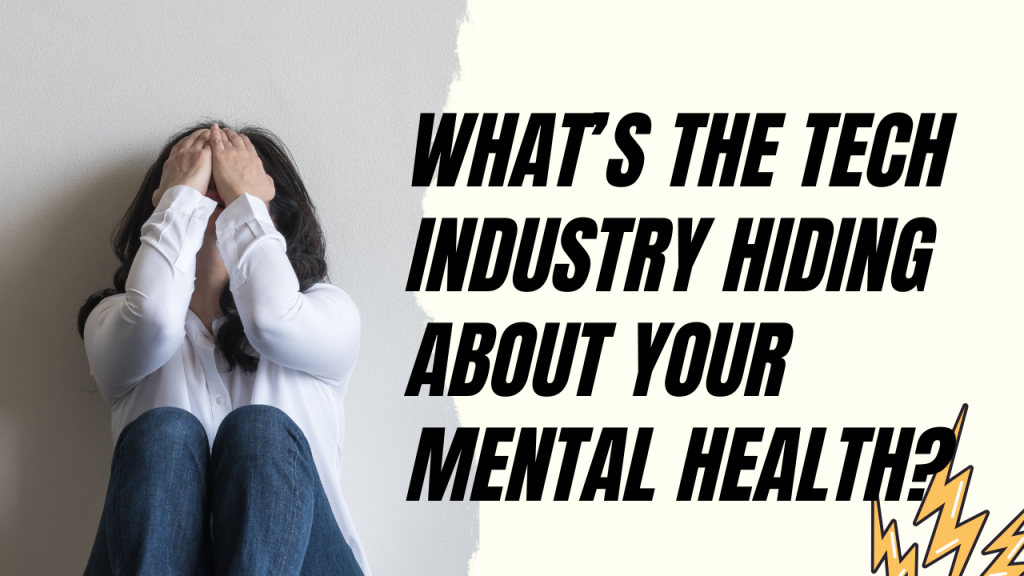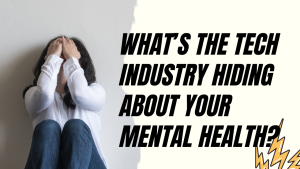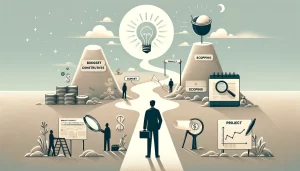It was 2 AM, and I was still debugging code. The deadline loomed, and I couldn’t afford to fail. At that moment, I realized how unhealthy my routine had become. Like many others in the tech industry, I thought constant hustling was a necessary evil.
In tech, we often glorify long hours and burnout as badges of honor. Freelancers, IT professionals, and managers alike frequently wear their stress like a trophy. Yet, beneath the surface, this mindset is eroding our mental health.
Over the years, I’ve seen countless colleagues break under the pressure. They seem successful but privately struggle with stress, anxiety, and burnout. The problem runs deep in the tech sector, but it’s rarely discussed openly.
The Culture of Overwork and Isolation
Tech professionals face relentless pressure to stay ahead in a constantly evolving industry. As deadlines tighten and projects expand, little room remains for self-care. Moreover, it’s common to feel isolated, especially for freelancers and remote workers, who often lack the support of a traditional team environment.
Consequently, this culture of overwork often leads to neglecting basic mental health needs. Simple acts like taking breaks, exercising, or even stepping away from the screen become afterthoughts. As a result, there’s a steady decline in mental well-being. Research supports this trend: a 2021 survey found that 62% of tech workers reported feeling physically or emotionally exhausted.
Furthermore, managers also contribute to this problem. In many companies, the expectation is to always be available, even after hours. Thus, the boundaries between work and personal life blur, creating a breeding ground for stress and IT burnout. Unfortunately, the issue is systemic and deeply ingrained in tech’s fast-paced work environment.
The Psychological Toll of IT Burnout
Burnout isn’t just about feeling tired. It’s an emotional and physical collapse that leaves you disengaged from your work, your colleagues, and even yourself. In tech, burnout is often invisible until it becomes a full-blown crisis. Stress in IT roles is pervasive, whether you’re firefighting a production issue or juggling multiple deadlines.
Many of us experience chronic anxiety over job security, skill relevance, and performance. The constant pressure to keep up with emerging technologies adds fuel to the fire. When compounded with isolation and long hours, the result is a toxic cocktail of stress, depression, and anxiety that silently destroys lives.
What makes matters worse is the stigma around mental health in tech. People feel reluctant to admit they’re struggling for fear of appearing weak. Instead of addressing these issues head-on, many choose to “tough it out,” believing that enduring stress is part of the job.
How to Reclaim Your Mental Health
It’s time to challenge this toxic mindset. One of the first steps to recovery is acknowledging that mental health in tech matters as much as job performance. Set boundaries to protect your well-being. Small changes like turning off notifications after hours or taking regular breaks can make a big difference.
Another key strategy is to seek support. If you’re a freelancer or remote worker, build a network of peers who understand the pressures you face. For IT professionals working in teams, don’t hesitate to talk to your manager about workload issues. Most importantly, take time to unplug. Disconnecting from technology occasionally is essential for mental recovery.
Companies must also take responsibility. Managers should foster a culture that prioritizes work-life balance and destigmatizes mental health struggles. Simple acts like offering mental health days, providing access to counseling, or adjusting workloads can transform a toxic environment into a supportive one.
Prioritizing Mental Health in Tech
Addressing mental health in the tech industry is not a one-time fix. It requires ongoing effort from both individuals and organizations. As tech professionals, we must advocate for ourselves and our well-being. Managers, too, need to lead by example, showing that taking care of mental health is not only acceptable but necessary for long-term success.
It’s time to break the silence around stress and burnout. The tech industry thrives on innovation, but that innovation should also apply to how we manage mental health. After all, no job is worth sacrificing your mental well-being for.






































